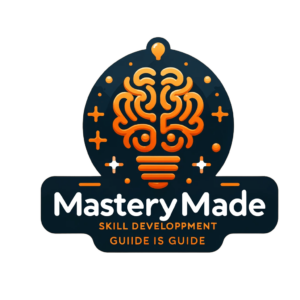Time is a precious resource that cannot be recaptured once lost. It’s essential to learn how to manage it effectively to achieve greater productivity in both personal and professional life. By developing essential time management skills, you can make the most of your time, prioritize tasks, and optimize your schedule to increase efficiency and reduce stress.
Key Takeaways
- Effective time management skills help increase productivity.
- Proper time management allows for better task prioritization and scheduling.
- Implementing time management techniques can help reduce stress and increase efficiency.
- Assessing your current time management skills is the first step to improving them.
- Eliminating time wasters and overcoming procrastination are key components of effective time management.
Understanding the Benefits of Time Management
At its core, effective time management allows us to be in control of our day-to-day lives, rather than feeling overwhelmed and out of sync. By improving your time management, you can save time, reduce stress, and increase productivity.
There are many time management strategies and tips that you can employ to better manage your time. These strategies include setting goals, managing priorities, and creating schedules.
One of the most useful and practical time management tips that we recommend is to create a to-do list at the start of each day. This list should contain all the tasks that need to be completed, ranked in order of priority. By completing the most important items first, you can ensure that you make the most of your time and stay on track throughout the day.
“Time is a created thing. To say ‘I don’t have time, is like saying, ‘I don’t want to.” – Lao Tzu
By understanding the benefits of time management, including improved productivity and reduced stress, you can begin implementing practical strategies and tips to better manage your time and maximize your potential.
Assessing Your Time Management Skills
Before you can improve your time management skills, you must first assess where you stand. With some honest self-reflection, you can identify which time management techniques work best for you and which ones you need to develop.
For students, effective time management skills are essential for productivity. You can assess your current time management skills by asking questions such as:
- Do I have a clear understanding of my priorities?
- Am I able to set realistic goals and deadlines?
- Do I have a schedule or routine to guide my tasks?
- Am I easily distracted by social media, emails, or other interruptions?
- Do I take breaks and practice self-care regularly?
Based on your answers, you can identify where you need to improve your time management skills. It’s important to note that everyone’s time management needs are different, so what works for one person may not work for another.
Assessing your time management skills is the first step towards success. By determining which time management techniques work best for you, you can then develop a plan to improve.

Setting Priorities and Creating Schedules
When it comes to time management, setting priorities and creating schedules are essential. By prioritizing your tasks and organizing your daily schedule, you can manage your time effectively and increase productivity.
One of the most useful time management tools is a to-do list. Start by creating a list of all the tasks that you need to complete. Then, prioritize them based on urgency and importance. This will help you decide which tasks require your immediate attention and which ones can wait.
Once you have prioritized your tasks, create a schedule that allows you to complete them efficiently. Use a calendar or planner to schedule time blocks for each task, and stick to the schedule as closely as possible. This will help you avoid distractions and stay focused on your priorities.
Effective time management techniques involve continuous improvement. Adjust your schedules and priorities as needed, and track your progress to ensure that you’re staying on track. With practice and persistence, you’ll soon develop strong time management skills that will help you accomplish your goals.
Eliminating Time Wasters
When it comes to time management, eliminating time wasters can make a significant difference in improving our productivity. These are activities or habits that take up our time without significant benefits, preventing us from accomplishing important tasks.
Identifying common time wasters is the first step to eliminating them. They may include:
- Excessive use of social media
- Procrastination
- Excessive multitasking
- Unnecessary distractions
- Unplanned meetings and phone calls
Fortunately, there are effective strategies to eliminate these and other time wasters. By creating a schedule, setting priorities, and using time management tools, we can better allocate our time to tasks that matter. It’s also essential to learn to say “no” to requests that don’t align with our goals.
By eliminating time wasters, we free up valuable time that we can devote to important activities. This enhances our productivity, and ultimately, our success, whether in our personal or professional life.
Overcoming Procrastination
We all have those days when we feel overwhelmed and put off tasks until the last minute. But procrastination only leads to stress and less productivity. In this section, we’ll show you how to overcome procrastination with time management strategies.
Understand the psychology behind procrastination: Procrastination is often rooted in fear of failure, lack of motivation, or feeling overwhelmed by a task. Recognize your underlying reasons for procrastination to tackle the issue effectively.
Break tasks into smaller, manageable goals: Procrastination arises when a task seems too large or daunting. Breaking tasks into smaller, achievable goals can make them seem less daunting and help you get started.
“The best way to get something done is to begin.”
– Unknown
Create a schedule: Creating a structured schedule can keep you on track and help you prioritize tasks. Add more difficult tasks during your most productive times of day and include breaks to keep yourself fresh.
Avoid distractions: Distractions can easily pull us away from tasks and lead to procrastination. Turn off social media and email notifications and focus on one task at a time to enhance your productivity.
By developing effective time management techniques and combating procrastination, you can enhance your productivity and reduce stress in your daily life.
Improving Focus and Concentration
Effective time management is not just about organizing your schedule; it’s also about honing your focus and concentration to make the most of your time. By minimizing distractions and staying on track, you can optimize your productivity and accomplish your goals efficiently.
One technique for enhancing your focus is the Pomodoro Technique. This involves setting a timer for 25 minutes and working on a task with intense concentration, followed by a 5-minute break. This cycle is repeated four times before taking a more extended 20-minute break.
Another strategy that can improve your concentration is blocking out time for specific tasks. This could mean dedicating a specific part of the day to emails, social media checks, or any other necessary activities while reserving more focused hours for your most crucial tasks.
Visualizing your objectives can also help you stay focused. Creating a vision board for your goals or setting a desktop background with a motivational quote or picture can help you maintain your concentration by reminding you of your intended outcomes.
Remember: Distractions and interruptions are inevitable, but with the right mindset and techniques, you can minimize their impact on your focus and maximize your productivity.

“The key is not to prioritize what’s on your schedule, but to schedule your priorities.” – Stephen Covey
Conclusion
As we’ve discussed throughout this article, time management skills are vital in boosting productivity and achieving success in various areas of your life. By implementing effective time management techniques, such as setting priorities and creating schedules, eliminating time wasters, overcoming procrastination, and improving focus and concentration, you can make the most of your time.
Remember to assess your current time management skills regularly and explore proven time management strategies and practical tips to enhance your productivity. Utilize useful time management tools and techniques to prioritize tasks and optimize your daily schedule.
We hope this article has provided you with valuable insights into the benefits of effective time management. With practice and dedication, you can develop time management skills that contribute to increased productivity, success, and fulfillment in both your personal and professional life.
FAQ
What are time management skills?
Time management skills are the abilities and techniques that help individuals effectively use their time to accomplish tasks, prioritize responsibilities, and achieve desired goals. These skills involve planning, organizing, prioritizing, and executing tasks efficiently.
How can effective time management boost productivity?
Effective time management allows individuals to allocate their time wisely, focus on important tasks, and avoid unnecessary distractions or time-wasting activities. By prioritizing tasks, creating schedules, and minimizing procrastination, individuals can optimize their productivity and accomplish more in less time.
What are some time management techniques that can be useful?
There are several time management techniques that can be helpful, such as the Pomodoro Technique (working in focused intervals with short breaks), the Eisenhower Matrix (prioritizing tasks based on urgency and importance), and the 80/20 rule (focusing on the vital few tasks that yield the most significant results). Experimenting with different techniques can help individuals find what works best for them.
How can I improve my time management skills?
Improving time management skills begins with self-awareness and understanding how you currently use your time. Assess your current habits, identify areas for improvement, and set specific goals to enhance your time management. Implementing effective strategies such as setting priorities, creating schedules, and eliminating time wasters can also contribute to improving your time management skills.
Are there any tools that can help with time management?
Yes, several tools and applications are available to assist with time management. These include task management apps, calendar tools, project management software, and productivity trackers. Finding the right tools that suit your needs and preferences can enhance your organization, planning, and overall time management efficiency.
How can time management skills benefit students?
Time management skills are crucial for students as they help them juggle multiple responsibilities, meet deadlines, and maintain a healthy work-life balance. Effective time management can reduce stress, increase productivity, improve academic performance, and create opportunities for personal growth and development.











